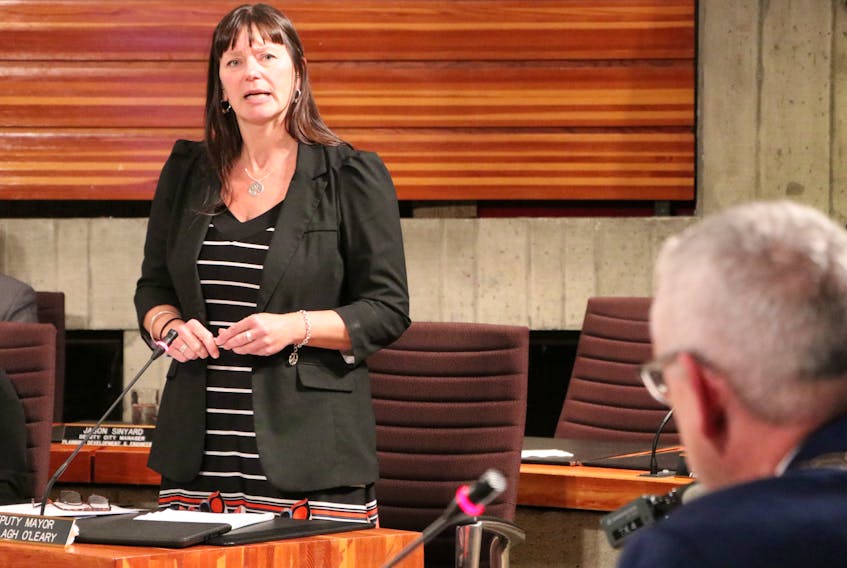If the City of St. John’s had the legislative power to impose a ban on single-use plastic bags, city council would do it, no question, Mayor Danny Breen said Tuesday.
But the provincial government holds that power and all the city can do is lobby for a ban to be imposed.
At Tuesday’s city council meeting, councillors unanimously passed a motion — made by Deputy Mayor Sheilagh O’Leary — to support a resolution passed on Nov. 4 by Municipalities Newfoundland and Labrador that requests the provincial government to prohibit all retail stores from providing customers with single-use plastic carryout (shopping) bags. Council also agreed to write a letter to the provincial government outlining that support.
It’s not the first time the city has approached the province on the issue.
“I believe this is probably the third time we’ve voted on this. It goes back to Municipalities Newfoundland and Labrador as well, and repeatedly we have said this to the province, and repeatedly no action has been taken on it,” Breen said. “I think it is pretty clear from the emails, the phone calls and the commentary that we get when we are out at public events that a vast majority of the residents, of St. John’s anyway, and across the province are in favour of a ban on plastic bags.
“I think it’s time the province stepped up and put a transition plan in place to implement this ban. I’m pretty sure if it was in the legislative capacity of this council we would do it, but it’s not within our powers to implement a ban, but I certainly call upon the province tonight to deal with the issue and move forward as it is an important issue, not only to us as residents, but to our children and grandchildren as well.”
The motion read by O’Leary noted that almost 50 per cent of all wind-borne litter escaping from landfills is plastic, much of it single-use plastic bags that end up tangled in trees or floating in inland and coastal waters.
She said single-use plastic bags remain a persistent waste stream in communities and an especially serious hazard for marine life, notwithstanding store bag recycling programs, biodegradable bag experiments and widespread incentives to adopt reusable bags.
O’Leary, who attended the Municipalities Newfoundland and Labrador conference in Corner Brook where the resolution was passed on Nov. 4, said the organization had the “overwhelming support” of its membership. It follows a similar 2015 resolution.
“The reason why this is actually back on the table again is because of the fact that this grew out of a resolution from Municipalities Newfoundland and Labrador, and it received overwhelming support from their membership, and when I was on council last time I took that overwhelmingly supported resolution province-wide back to our city council to show solidarity will all members of Municipalities Newfoundland and Labrador right across the province.
“Many other municipalities took the same action we are taking here today, which is to reaffirm that the bulk of the population in our province right now are ready to see a single-use plastic bag ban. The message has to go directly to the province, to the Department of Municipal Affairs and Environment, which has certainly been approached with this resolution from so many different angles now it’s quite incredible, but at present it is still a status quo response, which in this day and age, when we know how it can benefit communities, is unacceptable. So on behalf of the public it’s important we continue to be persistent.”









